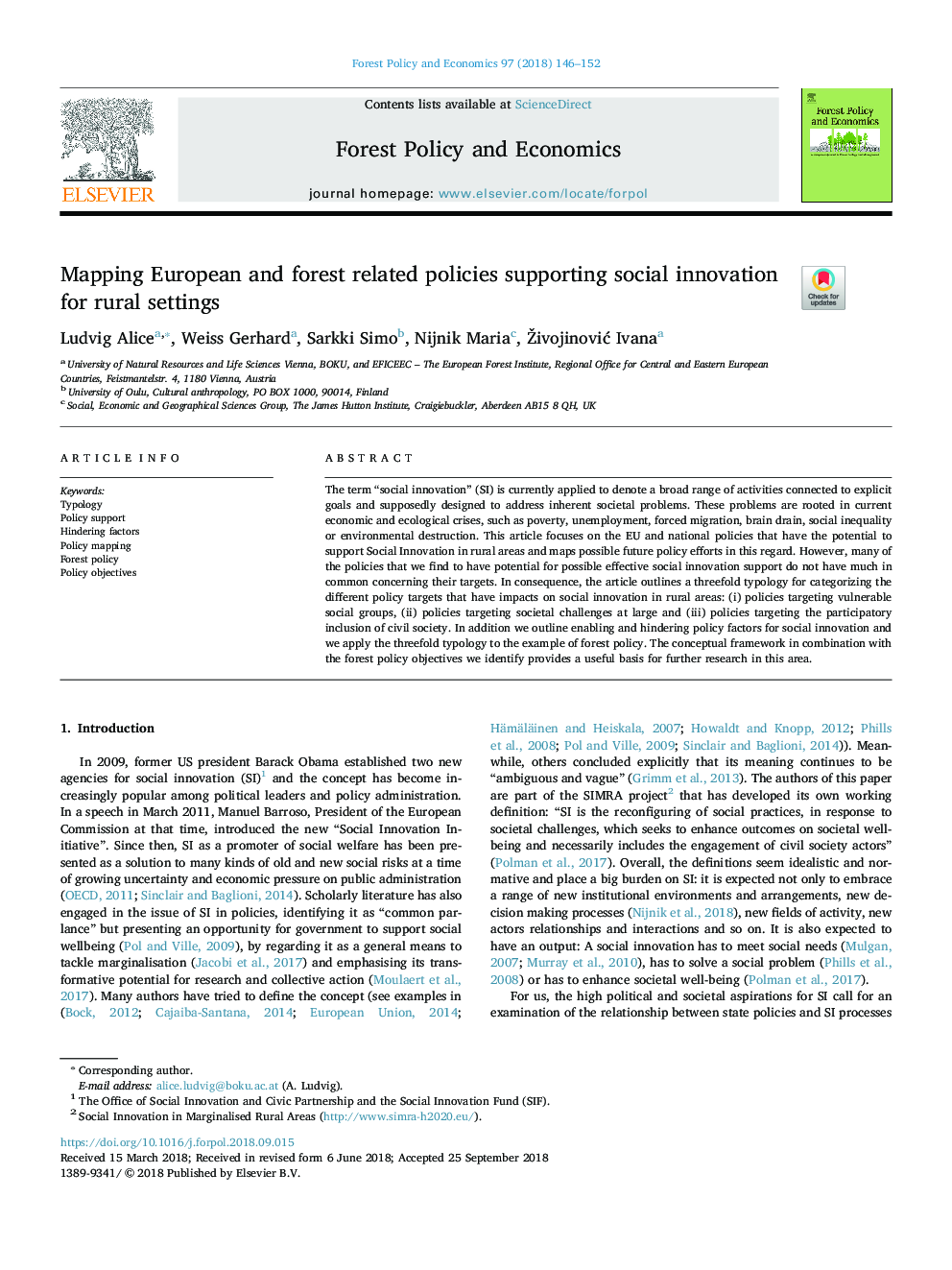| Article ID | Journal | Published Year | Pages | File Type |
|---|---|---|---|---|
| 11029014 | Forest Policy and Economics | 2018 | 7 Pages |
Abstract
The term “social innovation” (SI) is currently applied to denote a broad range of activities connected to explicit goals and supposedly designed to address inherent societal problems. These problems are rooted in current economic and ecological crises, such as poverty, unemployment, forced migration, brain drain, social inequality or environmental destruction. This article focuses on the EU and national policies that have the potential to support Social Innovation in rural areas and maps possible future policy efforts in this regard. However, many of the policies that we find to have potential for possible effective social innovation support do not have much in common concerning their targets. In consequence, the article outlines a threefold typology for categorizing the different policy targets that have impacts on social innovation in rural areas: (i) policies targeting vulnerable social groups, (ii) policies targeting societal challenges at large and (iii) policies targeting the participatory inclusion of civil society. In addition we outline enabling and hindering policy factors for social innovation and we apply the threefold typology to the example of forest policy. The conceptual framework in combination with the forest policy objectives we identify provides a useful basis for further research in this area.
Related Topics
Life Sciences
Agricultural and Biological Sciences
Forestry
Authors
Ludvig Alice, Weiss Gerhard, Sarkki Simo, Nijnik Maria, ŽivojinoviÄ Ivana,
